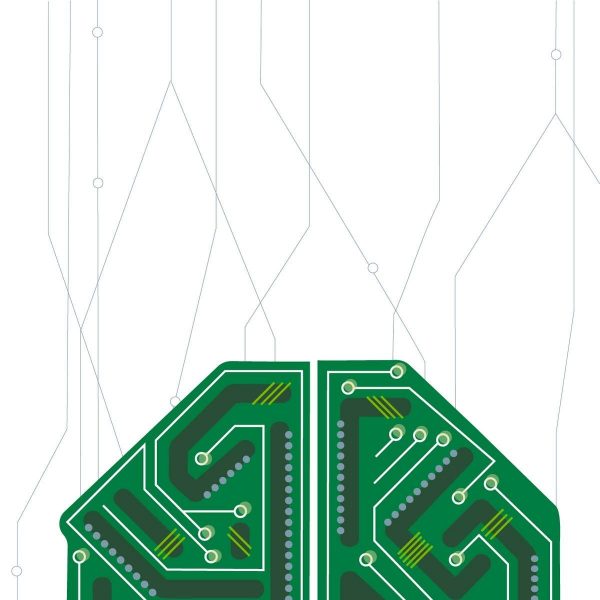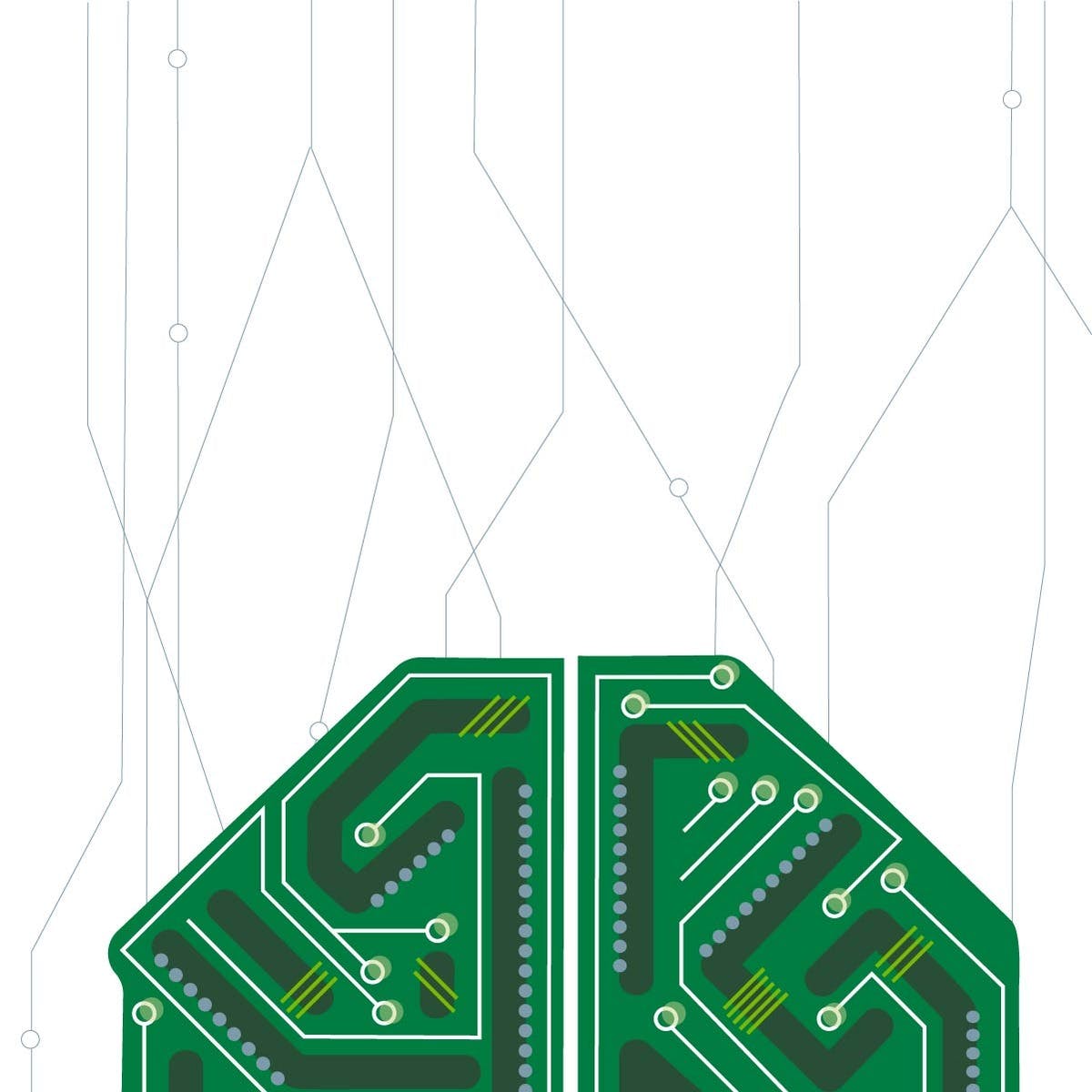
In this course, you will learn about several algorithms that can learn near optimal policies based on trial and error interaction with the environment –learning from the agent’s own experience. Learning from actual experience is striking because it requires no prior knowledge of the environment’s dynamics, yet can still attain optimal behavior. We will cover intuitively simple but powerful Monte Carlo methods, and temporal difference learning methods including Q–learning. We will wrap up this course investigating how we can get the best of both worlds: algorithms that can combine model–based planning (similar to dynamic programming) and temporal difference updates to radically accelerate learning. By the end of this course you will be able to: – Understand Temporal–Difference learning and Monte Carlo as two strategies for estimating value functions from sampled experience – Understand the importance of exploration, when using sampled experience rather than dynamic programming sweeps within a model – Understand the connections between Monte Carlo and Dynamic Programming and TD. – Implement and apply the TD algorithm, for estimating value functions – Implement and apply Expected Sarsa and Q–learning (two TD methods for control) – Understand the difference between on–policy and off–policy control – Understand planning with simulated experience (as opposed to …
Instructor Details
Courses : 4
Specification: Sample-based Learning Methods
|
57 reviews for Sample-based Learning Methods
Add a review Cancel reply
This site uses Akismet to reduce spam. Learn how your comment data is processed.

| Price | Free |
|---|---|
| Provider | |
| Duration | 18 hours |
| Year | 2019 |
| Level | Intermediate |
| Language | English |
| Certificate | Yes |
| Quizzes | No |

FREE






Alejandro D –
Excellent content and delivery.
Marius L –
Overall, I found the course well made, inspiring and balanced. The videos really helped me to understand the rather austere textbook. I give 4 stars because some of the coding exercises felt more like work in progress, without the help of other students I would not have been able to overcome these issues.
Mark J –
In my opinion, this course strikes a comfortable balance between theory and practice. It is, essentially, a walk through of the textbook by Sutton and Barto entitled, appropriately enough, ‘Reinforcement Learning’. Sutton’s appearances in some of the videos are an added treat.
JDH –
Rating 4.3 stars so far (first two classes combined) Lectures: 4.0stars Quizes: 4.0stars Programming assignments: 4.5stars Book (Sutton and Barto): 4.5stars In the spectrum from the theoretical to practical where you have, very roughly,… (1) “Why”: Why you are doing what you are doing (2) “What”: What you are doing (3) “How”: How to implement it (eg programming)& …this is a “what how” class. To cover the “why what” I strongly recommend augmenting this class with David Silver’s lectures (on Youtube) and notes from a class he gave at UCL. This covers more of the theory/math behind RL but covers less on the coding. Combined together with this class it probably comprises the best RL education you can get *anywhere*, creating a 5 star combo. http://www0.cs.ucl.ac.uk/staff/d.silver/web/Teaching.html
Scott L –
This course series is an incredible introduction to the basics of reinforcement learning, full stop. The course … style, if you will, is a bit weird at first, but it seems to have been done on purpose with the aim of making the course somewhat timeless; they are presenting maths that will not change, in a format that will (hilariously) be no more slightly corny and weird in 2030 as it is in 2019.
Ivan S F –
Great course. Clear, concise, practical. Right amount of programming. Right amount of tests of conceptual knowledge. Almost perfect course.
Kaiwen Y –
I spend 1 hour learning the material and coding the assignment while 8 hours trying to debug it so that the grader will not complain. The grader sometimes insists on a particular order of the coding which does not really matter in the real world. Also, grader inconsistently gives 0 marks to a particular part of the problem while give a full mark on other part using the same function. (Like numpy.max) However, the forum is quite helpful and the staff is generally responsive.
Kyle N –
Great course! The notebooks are a perfect level of difficulty for someone learning RL for the first time. Thanks Martha and Adam for all your work on this!! Great content!!
Manuel V d S –
Course was amazing until I reached the final assignment. What a terrible way to grade the notebook part. Also, nobody around in the forums to help… I would still recommend this to anyone interested, unless you have no intention of doing the weekly readings.
Damian K –
Great balance between theory and demonstration of how all techniques works. Exercises are prepared so it is possible to focus on core part of concepts. And if you will you can take deep dive into exercise and how experiments are designed. Very recommended course.
Sohail –
Fantastic!
koji t –
I made a lot of mistakes, but I learned a lot because of that. It ’s a wonderful course.
David C –
A very good course. The lectures are brief and provide a quick overview of the topics. The quizzes require more in depth reading to pass (covering material not discussed in the lectures) and the projects are difficult but rewarding and really help to cement the information. My only suggestion would be to lengthen the lectures to provide more discussion on the topics.
Ignacio O –
Great, informative and very interesting course.
Navid H –
definitely interesting subjects, but I do not like the teaching method. Very mechanic and dull, with not enough connection to the real world
Wang G –
Very Nice Explanation and Assignment! Look forward the next 2 courses in this specialization!
Sriram R –
Well done mix of theory and practice!
Max C –
Some of the programming homeworks were difficult to debug due to the feedback from autograder being unhelpful.
Alberto H –
A great step towards the acquisition of basic and medium complexity RL concepts with a nice balance between theory and practice, similar to the first one. [Note: the course requires mastering the concepts of the first one in the specialization, so don’t start here unless you’re sure you master its contents.]
David P –
Really a wonderful course! Very professional and high level.
Chan Y F –
The video content is not elaborated enough, need to read the book and search on the web to understand the idea
John H –
It was good.
AhmadrezaSheibanirad –
This course doesn’t cover all concept of Sutton book. like n step TD (chapter7) or some Planning and Learning with Tabular Methods (8 5, 8 6, 8 7, 8 8, 8 9, 8 10, 8 11), but what they teach you and cover are so practical, complete and clear.
Rashid P –
Best RL course ever done
Alex E –
A fun an interesting course. Keep up the great work!
LUIS M G M –
Great course!!! Even better than the 1st one. I tried to read the book before taking the course, and some algorithmics have not been clear to me until I saw the videos (DynaQ, DynaQ+). Same wrt some key concepts (on vs off policy learning).
Umut Z –
Good balance of theory and programming assignments. I really like the weekly bonus videos with professors and developers. Recommend to everyone.
Nikhil G –
Excellent course companion to the textbook, clarifies many of the vague topics and gives good tests to ensure understanding
Li W –
Very good introductions and practices to the classic RL algorithms
Manuel B –
Great course! Really powerful but simply ideas to solve sequential optimization problems based on learning how the environment works.
Yicong H –
Jump for here to there, it’s nice to have all these algorithms. My gut tells me something is not correct. Too much focus on experience, which means a lot of data. The model part is touched very little, and main focus is on when model is wrong…..
Majd W –
One of the amazing things this specialization stands out in is that it is based on a textbook. if you read from it and watch the lectures, you will have a very good understanding of the material. Also, the programming assignments are very beneficial.
Pachi C –
Great and fantastic course!!!
David R –
Course is not easy, videos presentation is a bit dull but the material is cool and interesting, and the additional quizzes, videos and especially notebooks make it a great course you learn a lot and see progress. Highly recommended.
Shashidhara K –
This course required more work than the 1st in the series, (may be i took it lightly as the first was not that difficult). Request : Please include some worked examples (calculations) or include in graded/ungraded quiz, will be nice.
Antonio P –
Great Course
Andrew G –
The course needs more support and / or error message output for the programming assignments. Code that seems correct can easily fail the autograder, and the only method of recourse is posting in the forums, which may or may not be received by a moderator.
chao p –
Great
garcia b –
very copacetic. excellent complement to the book
Parsa V –
This course is perfect. You will learn everything about sample based RL. The programming assignments are harder than the previous course, but you will understand all the algorithms better. These two courses covered part 1 of the book, and you will build a strong foundation of RL for the future.
Kiara O –
This course is well explained, easy to follow and made me understand much better the tabular RL methods. I liked it very much.
Lik M C –
Again, the course is excellent. The assignments are even better than Course 1. A really great course worth to take!
Kinal M –
Really great resource to follow along the RL Book. IMP Suggestion: Do not skip the reading assignments, they are really helpful and following the videos and assignments becomes easy.
Maxim V –
Good content, but a lot of annoying issues with grader.
LIWANGZHI –
A nice course with well designed homework:)
LOS –
Awesome! It is a pitty n steps and eligibility traces were not included felt like a huge gap. All the future chapters have a reference to the n steps, and your understanding won’t be complete unless you learn that as well.
hope –
This course is ok if you’re reading the Sutton & Barto RL book and would like to have some quizzes to follow along. The programming assignments are not really “programming” because you’re constrained to type a handful of lines in a few places into a solution that is largely has been prepared for you. With “hints” like “# given the state, select the action using self.choose action egreedy(), # and save current state and action ( 2 lines) ### self.past state ? ### self.past action ?” it is impossible to get them wrong. These exercises are ok as labs (comparing various algorithms, etc), but the programming part can be done by rote. Coursera has classes with more intense and creative programming assignments and the learning there seems to be much deeper.
nicole s –
I like the teaching style the emphasis on understanding and the fruitful combination with the textbook. Highly recommended!
Duc H N –
The last test is a little bit tricky
Gordon L W C –
The course is intermediate in difficulty. But it explains the concept very clearly for me to understand difference between different sample based learning methods.
Tran Q M –
wondrous course
Maximiliano B –
The second course of the specialization is excellent and it provides a solid foundation on sample based learning methods. The book and the videos complement each other making the learning experience rich and pleasant. The professors explain the content very well and the programming assignments are very interesting to consolidate the knowledge. I had a few issues with the grader and it just returns the score without any message that could help find out what is causing the unexpected behavior. As a suggestion, I would like to suggest that the grader could return any additional information and/or include new unit tests. I am looking forward to begin the next course of the specialization.
Sebastian T –
I t w a s g o o d i n s u b s t a n e but there is plenty of issues with the automated grader. you spend most time dealing with the letter not on actual learning of the matter.
Liam M –
The assignments are an exercise in programming far more than they are a learning tool for RL. The course lectures are good, and I recommend auditing the course.
Roberto M –
The course is well organized and teachers provide a lot of examples to facilitate comprehension.
Li W –
Very good introductions and practices to the classic RL algorithms
Cristian V –
The course provides a lot of value. I only give 4 stars because the classes are scripted and feel unnatural to me.